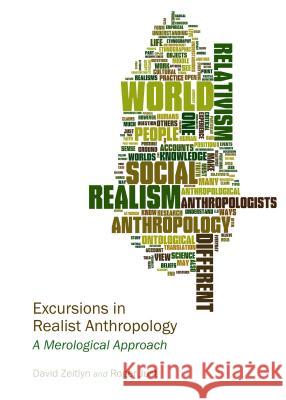Excursions in Realist Anthropology : A Merological Approach » książka
Excursions in Realist Anthropology : A Merological Approach
ISBN-13: 9781443864039 / Angielski / Twarda / 2014 / 160 str.
Realism has become a dirty word in some social sciences, yet, despite fashionable new approaches involving multiple ontologies and the like, when anthropologists actually produce ethnographic accounts they are, still, indulging in realism in some form. Perhaps this is why ethnography, too, is unfashionable. Given the authors' background as anthropologists committed to fieldwork, this book provides a theoretical grounding to justify and explain the sorts of accounts that anthropologists produce as the result of ethnographic research. The book's approach starts from an acceptance that understanding is always incomplete, always improvable. This sort of partiality is viewed throughout the book as a strength. The challenge of anthropology is that it involves forms of translation: often across languages, but always between the unstated and the explicit. Accepting provisionality and incompleteness in the resulting translations provides ways of finding a middle ground between extreme versions of positivism and relativism. As such, this book argues for moderate realisms in a dappled world.











